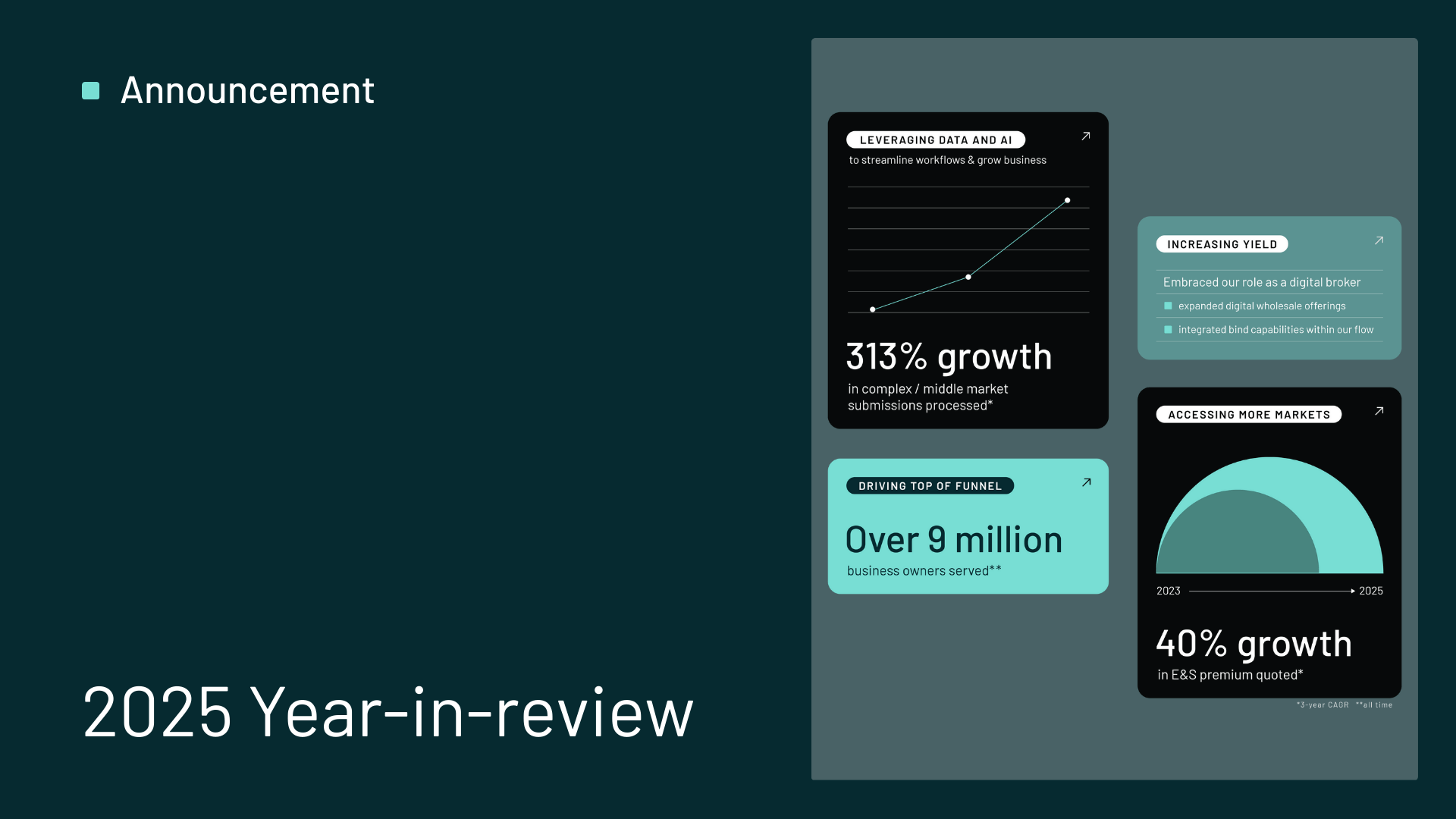Actionable tips to get to know your customer
Six ways for you to truly know your customer, understand their unique needs, and deliver the right commercial insurance coverage

Know your customer to deliver the right insurance and the best service
Contributed by Carlos Gonzalez-Avila, Small Commercial Insurance Specialist at Bold Penguin. In this role, Gonzalez-Avila provides support for commercial insurance agents, creating best practices and educational resources that ultimately help them know their customers and grow their success.
As a commercial insurance agent, you face tough competition from other local insurance agents for new and existing business customers. A key differentiator between you and the competition lies in your ability to know your customer and provide the best possible customer service. But what does “best possible customer service” really mean? Some may think that smiling, acting professionally, and promptly returning phone calls is all that is required to sell a policy and provide good customer service.
Some of your competition may even be willing to cut corners to obtain the best price, and view that as “best possible customer service.” But that business ethos can lead to devastating consequences for the client should a claim arise.
The most critical aspect of “best possible customer service” is ensuring the client is adequately insured. To accomplish that, you need to truly know your customers and their businesses, and in turn, take that information and translate it into comprehensive protection that is tailored for each unique business.
Understanding an insured's business and what they do involves a sincere commitment to seeing the world from the client's vantage point and having the intellectual curiosity to dig deeper with the insured to understand their business inside and out.
Actionable steps for agents to know your customer and understand the core of your customer’s business
To provide the “best possible customer service” you must understand the core of your customer’s business. This means identifying their highest liability exposures and then in turn, ensuring that they are covered against those potential risks and liabilities. That makes sense, right? But how do you take this principle and put it into practice? What are some tangible steps you can take to truly know your customer and understand their core business? Below are six steps to achieving that deeper level of understanding:
- Conduct your own research
Getting to know your customer deeply starts with researching the business’ operations, property exposures, and perils by asking the right questions. Look at these items with an analytical lens that only an experienced agent can provide. Examine the heart of an insured's business to truly understand how much money the insured earns, what products or services the insured offers, the manufacturing or procurement pipeline, how the insured sells its products or services (retail, online, person-to-person, business-to-business, or business-to-government), and whether all the components of the business make sense under one policy.
- Personally check out the insured’s location
For businesses with physical locations, personally visit or drive by the place of business to verify operations. This gives you the opportunity to verify the scope of the business, making sure that the operations match the business classification. You can also see first-hand aspects of the business that might be outside of the scope. For example, if the insured told you they have a restaurant that is casual dining, i.e., a sit down restaurant, however, when you visit the location, it is actually a food truck.
- Research the business’ web presence
Take the time to visit the business’ website and social media pages to ensure that what they are conveying to the public matches your understanding of the business type and the products and services offered.
- Read third-party customer reviews
Read customer reviews written on their Google Business Profile, Yelp, etc., to learn about the business and get to know your customer from third-party perspectives. For example, maybe there is a review for a service offered that you were previously unaware of. That service will need protection in the future.
- Conduct client research by requesting loss runs
Loss runs, which detail a business’ history of insurance claims, will give you clues about the business, such as past claim types, the nature and amount of losses, and more importantly, clues about the actual operations. This also helps evaluate risk and management capabilities to know your customer fully as a business owner.
- Check state records
The business’ registration forms sometimes contain a formal business description. This might yield new or overlooked information that the other research didn’t yield.
Confirm findings as you get to know your customer
After this research is completed, you’ll want to summarize your findings to the client, address any questions and misconceptions, and reassure them that you really do understand their business.
And remember, it goes both ways. One big misconception from a client's point of view is they only need a single policy to cover everything, regardless of what products or services they offer. They might assume that business insurance is universal, similar to personal lines policies (for example, a singular auto policy can cover multiple vehicles, regardless of make/model or value). So, as an agent, you must address these misconceptions and help customers understand that although you offer service ABC and product XYZ, they may require two different business policies as each service and product has distinct associated liabilities.
The scope of impact through understanding
To know your customer and their business protection needs requires patience, curiosity, industry expertise, and a collaborative spirit. For insurance agents, this deep understanding forms the bedrock upon which risk assessments are made and insurance policies are tailored. It's not merely about selling policies and premiums or treating customers like family; it's about safeguarding dreams, the actual business, the employees of the insured, and the hard work and investment that go into every business. As such, this understanding is an ongoing process that enriches the agent and the client, fostering a partnership that navigates the complexities of risk and insurance with confidence and expertise.
Join the conversation on LinkedIn or contact us to learn more.



.png)